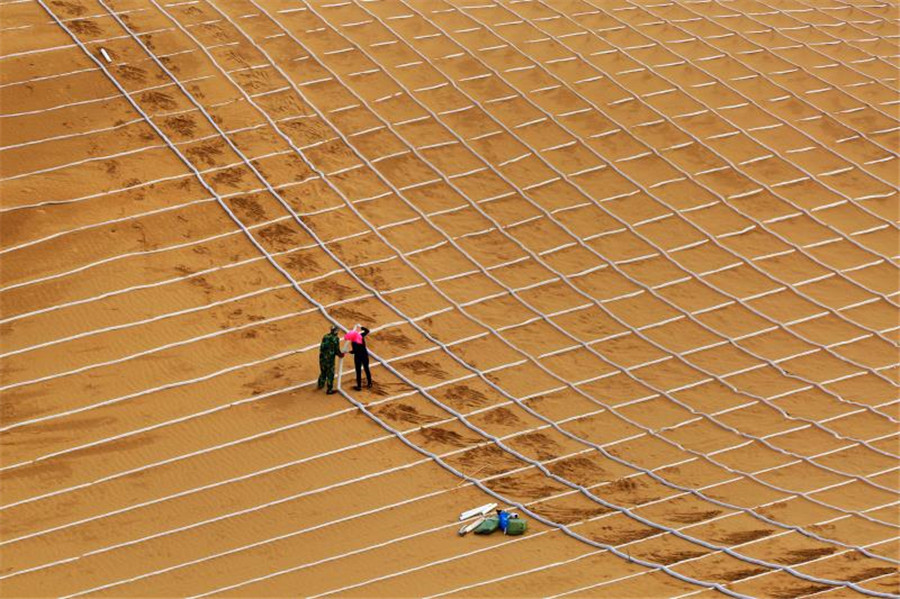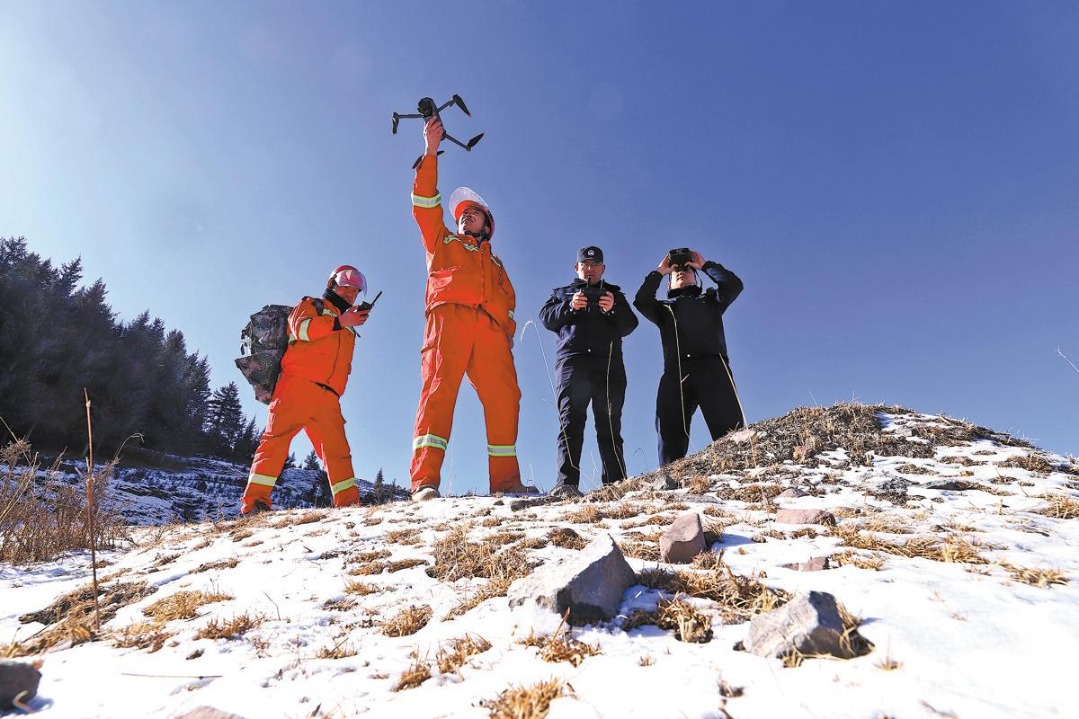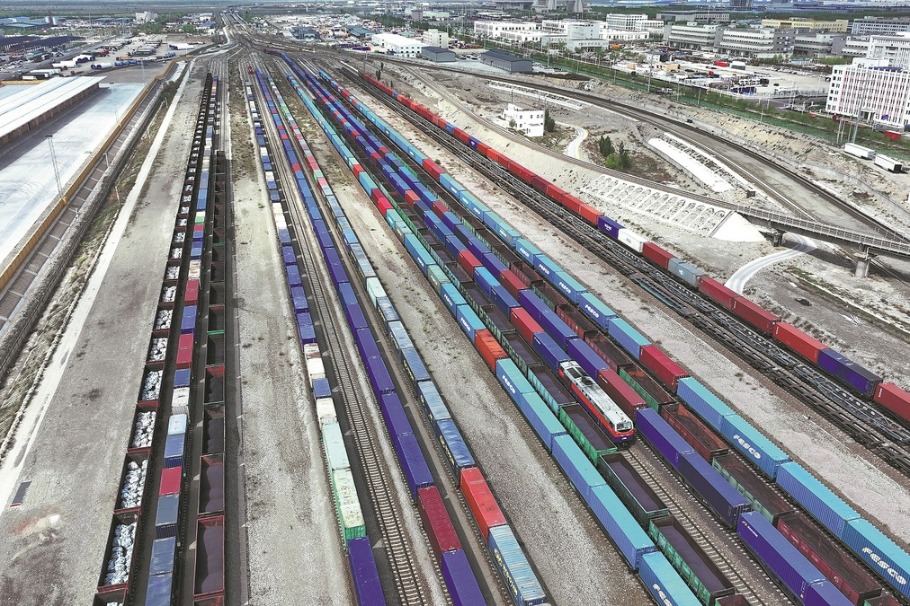UN expert: Nation's effort to fight desertification worthy of praise


China's ongoing success in transforming barren deserts into productive land should be emulated worldwide, especially by countries and regions involved in the Belt and Road Initiative, said a leading environmental protection expert with the United Nations.
Recalling the "green miracle" in the Kubuqi Desert, China's seventh-largest desert, Erik Solheim, executive director of the UN Environment Programme, said he was impressed by the collective efforts that thousands of people have made.
The total area of greenery in the desert has expanded by more than 6,000 square kilometers in the past three decades, according to government data from the Inner Mongolia autonomous region.
"China is a global leader in turning the tide on desertification, as I have seen with my own eyes in Kubuqi. People coming from such poor circumstances and used to living a life with hardly anything to eat once saw the desert as a big threat," Solheim said.
"But under the collective efforts that thousands of people have made, the desert is now turning into a huge opportunity to create fortune through solar panels, ecotourism and forestation," he said.
He said China has found several workable solutions to combat desertification, as shown not only by Kubuqi but also projects like Saihanba National Forest Park in Hebei province, which won a Champions of the Earth award during the UN Environment Assembly in December last year.
Solheim said success stories in China cannot all be replicated elsewhere as flora in Inner Mongolia or Hebei will be different from crops in other regions. However people can learn from the people's talent, spirit and technology from those examples.
"What is the best practice and what can others learn are the most common questions we've encountered in green development," he said. "Expert exchanges can help people share their experiences from Inner Mongolia."
He said Africa has some very dry areas with high population growth and limited job opportunities. "If we could turn areas like Kubuqi into a success, why can't deserts be opportunities rather than threats in Africa and even benefit other regions like Iran?" he added.
Last year, a coalition for green development on the Belt and Road was jointly established by China and UNEP as an international platform to share environmental policies and experiences among the countries involved in the Belt and Road Initiative, and promote wider cooperation.
The coalition will support putting together an ecological environmental data platform related to the Belt and Road and encourage businesses to play active roles in the green development of the countries involved in the initiative.
Solheim believes the initiative proposed by President Xi Jinping will have enormous influence on the region's development and UNEP also wants to guide it in a green direction.
"There's so much we can do under the initiative and make this a driving force for environmental development. Obviously it cannot just be in the partnership between China and UNEP, but also with more partners, such as Sri Lanka, Kazakhstan, Ethiopia or any other nation involved in the Belt and Road," he said.
China is now pursuing green development, which he believes will include stepping up efforts to establish a framework to push green production and consumption, and promote a sound economic structure that facilitates green, low-carbon and sustainable development.
"It will be exciting to see how ecological civilization will be put into action not just in China, but in China's work abroad. I hope its partnership with UNEP continues to deepen," Solheim said.
"China can take this cause in its dealings with the rest of world as a powerful driver of positive global change," he said.
The world is witnessing what may well turn out to be the definitive how-to guide on building a sustainable economy that works in complete harmony with the environment, Solheim said.
And policymakers have been facing an either-or proposition to a seemingly impossible equation: How to lift tens of millions of people out of poverty and at the same time preserve their natural environment.
"Many countries have managed to upend this apparent trade-off in recent years, but for the larger economies, in most cases wealth has been built on unsustainable growth.
"That is about to change, and I'm convinced China will now lead the way," he said.
- 6 remain missing after fireworks factory blast in Hunan, 1 dead
- Shanghai enhances quality development of PE in schools
- Xi meets Kazakh President Kassym-Jomart Tokayev
- Juneyao Air launches world's first Legoland-themed flight
- Volleyball league vitalizes Hainan through culture and sports
- Wuxi's prized peaches enter peak harvest season






































